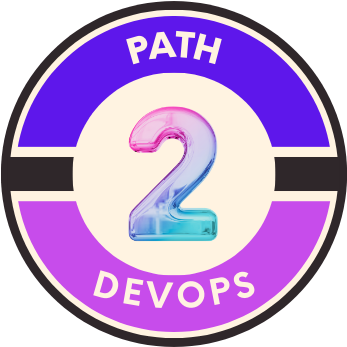Outline
- Introduction
- Definition of DevOps
- Importance of understanding DevOps’ origins
- The Pre-DevOps Era
- Siloed development and operations teams
- Challenges and inefficiencies in the software development process
- The Birth of DevOps
- The emergence of Agile and its influence on DevOps
- Collaboration between developers and operations engineers
- Influential Figures in DevOps
- Patrick Debois and his “DevOpsDays” conference
- John Willis and Damon Edwards’ “The Phoenix Project”
- Key Principles of DevOps
- Automation and continuous integration
- Infrastructure as code (IaC)
- Culture of collaboration and shared responsibility
- The Rapid Growth of DevOps
- Adoption by industry-leading organizations
- Impact on software development practices
- The DevOps Ecosystem
- DevOps tools and technologies
- Integration with cloud computing and containerization
- Challenges and Successes
- Cultural resistance to change
- Real-world success stories of DevOps implementation
- Future of DevOps
- Evolving trends and innovations
- The potential impact of DevOps on other industries
- Conclusion
- Recap of DevOps’ journey and significance in modern software development
- FAQs
- Frequently asked questions about the history and impact of DevOps
- Unique answers to common queries
Introduction
DevOps is a revolutionary approach to software development and IT operations that has transformed the industry. This article delves into the origins of DevOps, how it evolved, and the key figures and principles that contributed to its success. Understanding the roots of DevOps sheds light on its importance and the reasons behind its widespread adoption.
The Pre-DevOps Era
Before DevOps came into the picture, the software development process was often fragmented, with development and operations teams working in isolation. This siloed approach led to communication gaps, slow releases, and inefficiencies that hindered the delivery of high-quality software products.
The Birth of DevOps
The concept of DevOps was born out of the need for a more collaborative and streamlined approach to software development. The Agile methodology, with its focus on iterative and customer-centric development, laid the groundwork for DevOps. Agile emphasized frequent communication and collaboration between developers and stakeholders, creating a culture of shared responsibility.
Influential Figures in DevOps
Two influential figures played a pivotal role in shaping the DevOps movement. Patrick Debois, a Belgian software consultant, organized the first “DevOpsDays” conference in 2009, where experts and practitioners gathered to discuss the intersection of development and operations. Additionally, John Willis and Damon Edwards authored “The Phoenix Project,” a novel that highlighted the challenges faced by traditional IT organizations and the transformative power of DevOps.
Key Principles of DevOps
DevOps is built upon core principles that drive its success. Automation and continuous integration allow teams to deliver software faster and with fewer errors. Infrastructure as code (IaC) treats infrastructure configuration as software, enabling version control and repeatability. Furthermore, the culture of collaboration and shared responsibility fosters strong team dynamics and continuous improvement.
The Rapid Growth of DevOps
The adoption of DevOps quickly gained momentum, with industry-leading organizations recognizing its potential to revolutionize software development. Companies across various sectors, from startups to enterprises, embraced DevOps practices, leading to significant improvements in productivity, reliability, and customer satisfaction.
The DevOps Ecosystem
The DevOps movement has spawned a rich ecosystem of tools and technologies to support its principles. Continuous integration and continuous deployment (CI/CD) pipelines automate the software delivery process. Cloud computing and containerization technologies complement DevOps, providing scalable and flexible infrastructure for applications.
Challenges and Successes
The journey towards DevOps implementation has not been without challenges. Cultural resistance to change within organizations can pose significant hurdles. However, numerous real-world success stories demonstrate the transformative impact of DevOps on business outcomes, inspiring others to embark on their DevOps journey.
Future of DevOps
As technology and business requirements evolve, DevOps continues to adapt. The future of DevOps holds exciting possibilities, with advancements in AI and machine learning, serverless architecture, and edge computing influencing the landscape of software development and IT operations.
Conclusion
In conclusion, the birth of DevOps was a response to the shortcomings of traditional software development practices. DevOps emphasizes collaboration, automation, and a culture of shared responsibility, paving the way for a more efficient and customer-centric approach to software delivery. As DevOps continues to shape the industry, its history serves as a testament to its impact on modern software development.
FAQs
- Q: Is DevOps applicable only to software development?
- A: While DevOps originated in software development, its principles can be adapted to other fields, such as IT operations, security, and even marketing.
- Q: How does DevOps promote continuous improvement?
- A: DevOps encourages teams to learn from failures, automate repetitive tasks, and implement feedback loops for ongoing improvement.
- Q: Can small organizations benefit from adopting DevOps?
- A: Yes, DevOps principles can be scaled and tailored to suit the needs of organizations of all sizes.
- Q: What are some popular DevOps tools in the industry?
- A: Some popular DevOps tools include Jenkins, Git, Ansible, Docker, and Kubernetes.
- Q: Can DevOps address security concerns in software development?
- A: Yes, DevOps includes security practices, such as DevSecOps, to integrate security throughout the software development lifecycle.
